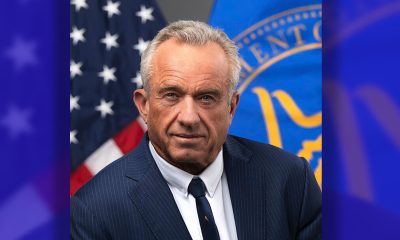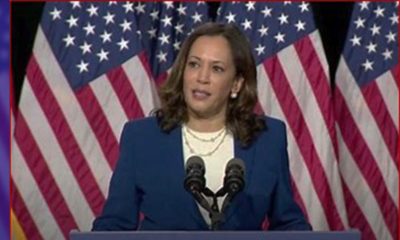Op-Ed
Questions About the Measles Controversy

By Bill Fletcher, Jr.
NNPA Columnist
I have to confess that I really cannot believe the measles controversy. The issue of vaccinations had been settled, at least so I thought, until I realized that instead of science, there is an increased reliance on, forgive me for this expression, “urban myths.”
I remember first encountering a major urban myth in connection with the suggestion that there were/are alligators in the New York City sewer system. Proponents of this myth were always so certain and so definitive that it seemed that there was little question as to the validity of the story, i.e., that baby alligators had been flushed down toilers and now haunted the sewer system. There was only one problem: it was not true.
What I learned from this is that many people can and will adopt a certain viewpoint irrespective of the facts if it substantiates an opinion or fear that they have. This seems to have become the case in the matter of measles. The suggestion that the measles vaccination will result in autism has been repeated time and again. Is it possible that there will be side effects with the vaccination? There are possible side effects with any vaccination, but the percentages are so infinitesimally small. Yet, if one wants to, one can worry about this endlessly.
Yet, I will suggest something that is actually worth worrying about and, yes, it is in connection with measles and, no, it has nothing to do with a side-effect of the vaccination: birth defects. People infected and contagious with measles represent an immense danger to pregnant women. This is a fact and it has been demonstrated. Women who contract the measles during pregnancy face the very real risk of their baby having birth defects.
It is for this reason that the current debate about the measles vaccination is so myopic and wrong-headed. We should be more concerned about what happens when an illness that is preventable is let loose and its impact on vulnerable populations. This is not mainly an issue of children catching the measles from others, but rather its impact on others.
Let me tell you a story. At the age of 39, I contracted chicken pox. I had thought that I had had it as a child. I may have had contact with it but I never had a full blown case. When I got it, two weeks after my then 4-year-old contracted it, I thought that I was going to die. The level of pain, misery and weakness helped me to truly understand why it can be fatal for adults to contract “childhood illnesses.”
When you are thinking about the measles vaccination issue consider this carefully. Think about the vulnerable populations. This is really not a personal decision, to be honest. This is a social decision, that is, the decision of the individual potentially has a far broader impact than on one child or even one family.
An embrace of myths about the measles vaccination is really about throwing the dice, with the well-being of others at issue.
Bill Fletcher, Jr. is the host of The Global African on Telesur-English. He is a racial justice, labor and global justice writer and activist. Follow him on Twitter, Facebook and at www.billfletcherjr.com.
###
Alameda County
Seth Curry Makes Impressive Debut with the Golden State Warriors
Seth looked comfortable in his new uniform, seamlessly fitting into the Warriors’ offensive and defensive system. He finished the night with an impressive 14 points, becoming one of the team’s top scorers for the game. Seth’s points came in a variety of ways – floaters, spot-up three-pointers, mid-range jumpers, and a handful of aggressive drives that kept the Oklahoma City Thunder defense on its heels.

By Y’Anad Burrell
Tuesday night was anything but ordinary for fans in San Francisco as Seth Curry made his highly anticipated debut as a new member of the Golden State Warriors. Seth didn’t disappoint, delivering a performance that not only showcased his scoring ability but also demonstrated his added value to the team.
At 35, the 12-year NBA veteran on Monday signed a contract to play with the Warriors for the rest of the season.
Seth looked comfortable in his new uniform, seamlessly fitting into the Warriors’ offensive and defensive system. He finished the night with an impressive 14 points, becoming one of the team’s top scorers for the game. Seth’s points came in a variety of ways – floaters, spot-up three-pointers, mid-range jumpers, and a handful of aggressive drives that kept the Oklahoma City Thunder defense on its heels.
One of the most memorable moments of the evening came before Seth even scored his first points. As he checked into the game, the Chase Center erupted into applause, with fans rising to their feet to give the newest Warrior a standing ovation.
The crowd’s reaction was a testament not only to Seth’s reputation as a sharpshooter but also to the excitement he brings to the Warriors. It was clear that fans quickly embraced Seth as one of their own, eager to see what he could bring to the team’s championship aspirations.
Warriors’ superstar Steph Curry – Seth’s brother – did not play due to an injury. One could only imagine what it would be like if the Curry brothers were on the court together. Magic in the making.
Seth’s debut proved to be a turning point for the Warriors. Not only did he contribute on the scoreboard, but he also brought a sense of confidence and composure to the floor.
While their loss last night, OKC 124 – GSW 112, Seth’s impact was a game-changer and there’s more yet to come. Beyond statistics, it was clear that Seth’s presence elevated the team’s performance, giving the Warriors a new force as they look to make a deep playoff run.
Activism
Essay: Intentional Self Care and Community Connections Can Improve Our Wellbeing
At the deepest and also most expansive level of reality, we are all part of the same being, our bodies made from the minerals of the earth, our spirits infused by the spiritual breath that animates the universe. Willingness to move more deeply into fear and pain is the first step toward moving into a larger consciousness. Willingness to move beyond the delusion of our separateness can show us new ways of working and living together.

By Dr. Lorraine Bonner, Special to California Black Media Partners
I went to a medical school that was steeped in the principles of classical Western medicine. However, I also learned mindfulness meditation during that time, which opened me to the multifaceted relationship between illnesses and the interconnecting environmental, mental and emotional realities that can impact an individual’s health.
Therefore, when I began to practice medicine, I also pursued training in hypnosis, relaxation techniques, meditation, and guided imagery, to bring a mind-body focus to my work in medical care and prevention.
The people I saw in my practice had a mix of problems, including high blood pressure, diabetes, and a variety of pain issues. I taught almost everyone relaxation breathing and made some general relaxation tapes. To anyone willing, I offered guided imagery.
“My work embraced an approach to wellness I call “Liberatory Health” — one that not only addresses the treatment and management of disease symptoms but also seeks to dismantle the conditions that make people sick in the first place.”
From my perspective, illness is only the outermost manifestation of our efforts to cope, often fueled by addictions such as sugar, tobacco, or alcohol, shackled by an individualistic cult belief that we have only ourselves to blame for our suffering.
At the deepest and also most expansive level of reality, we are all part of the same being, our bodies made from the minerals of the earth, our spirits infused by the spiritual breath that animates the universe. Willingness to move more deeply into fear and pain is the first step toward moving into a larger consciousness. Willingness to move beyond the delusion of our separateness can show us new ways of working and living together.
To put these ideas into practical form, I would quote the immortal Mr. Rogers: “Find the helpers.” There are already people in every community working for liberation. Some of them are running for office, others are giving food to those who need it. Some are volunteering in schools, libraries or hospitals. Some are studying liberation movements, or are working in urban or community gardens, or learning to practice restorative and transformative justice, or creating liberation art, music, dance, theater or writing. Some are mentoring high schoolers or apprenticing young people in a trade. There are many places where compassionate humans are finding other humans and working together for a better world.
A more compassionate world is possible, one in which we will all enjoy better health. Creating it will make us healthier, too.
In community, we are strong. Recognizing denial and overcoming the fragmenting effects of spiritual disorder offer us a path to liberation and true health.
Good health and well-being are the collective rights of all people!
About the Author
Dr. Lorraine Bonner is a retired physician. She is also a sculptor who works in clay, exploring issues of trust, trustworthiness and exploitation, as well as visions of a better world.
Activism
Opinion: Can Donald Trump Pole Dance?
Given all that is happening, if the presidency was more like pole dancing, you know Trump would be flat on his butt.

By Emil Guillermo
The news cycle has been buzzing the last few weeks. Xi, with Putin and Kim, the sweethearts of Trump carousing alone without him? The victims of the pedophile Epstein speaking out publicly in DC.
Then, there’s the release of that salacious letter Donald Trump allegedly wrote to Jeffrey Epstein. Trump said the letter didn’t exist. But it does.
Timing is everything.
Additionally, there are further concerns, such as the Supreme Court removing restrictions on ICE interactions. ICE Agents can stop anyone now. For any reason. And there’s the threat of the U.S. sending the military to fight crime in Chicago. Trump even posted a meme of himself as a character in “Apocalypse Now.”
All that with bad polls and bad economic numbers, and these topics are dominating the news cycle — Trump era chaos.
Given all that is happening, if the presidency was more like pole dancing, you know Trump would be flat on his butt.
The reality is the opposite. He keeps going strong like nothing’s happened. Inexplicably, Trump always seems to defy gravity.
That’s why to reassure myself with reality, I just think of Trump on a pole. Dancing. He was born on Flag Day, after all.
I’ve got pole dancing on my mind because I’m in Canada at the Vancouver Fringe Festival doing my show, “Emil Amok 69, Everything’s Flipped,” about how the current political situation gets very personal.
Get tickets here if you’re near:
I’ve performed at 16 fringe festivals, and I always look for unique performers. This year, in my same venue (the Revue Stage) I found her in a show, “The Pole Shebang.”
Andrea James Lui may look like a typical Asian American at first.
But she’s Asian Canadian, married to an Australian, who now lives down under.
At the Vancouver Fringe, she highlights her special identity.
Pole Dancer
Yes, pole dancing has come to the fringe. Leave your dollar bills at home, this is not that kind of pole dancing.
This is more Cirque Du Soleil-ish- acrobatic stuff, yet it’s hard to deny the sexiness when a woman flawlessly swings from a pole with her legs apart.
The show is more intriguing than it is titillating.
Lui has created a behind-the-scenes look at the “polar” experience.
“She could have been a physicist,” says her big sister Christina, who despite saying that, supports her sister 100 percent.
Lui touches on some of the emotional depth in the poled subculture. But there’s plenty more to mine in the future. “Polar Bare,” the Musical? I’d see it.
Trump on a Pole
So that’s how I’ve come to the polar metaphor.
As Trump flails in the news, I picture him on a pole.
The letter to Epstein is further proof of the character of the man.
Will he stay afloat?
Not if the presidency were more like pole dancing.
You can’t lie on the pole.
That’s one way all of us in the Trump era can get to the truth.
About the Author
Emil Amok is a veteran journalist, commentator, and stage monologist. He has written a weekly column on Asian Americans for more than 30 years.
Contact: www.amok.com
-

 Activism4 weeks ago
Activism4 weeks agoOakland Post: Week of November 12 – 18, 2025
-

 Activism3 weeks ago
Activism3 weeks agoIN MEMORIAM: William ‘Bill’ Patterson, 94
-

 Activism4 weeks ago
Activism4 weeks agoHow Charles R. Drew University Navigated More Than $20 Million in Fed Cuts – Still Prioritizing Students and Community Health
-

 Bay Area4 weeks ago
Bay Area4 weeks agoNo Justice in the Justice System
-

 #NNPA BlackPress3 weeks ago
#NNPA BlackPress3 weeks agoBeyoncé and Jay-Z make rare public appearance with Lewis Hamilton at Las Vegas Grand Prix
-

 #NNPA BlackPress3 weeks ago
#NNPA BlackPress3 weeks agoLewis Hamilton set to start LAST in Saturday Night’s Las Vegas Grand Prix
-

 Activism3 weeks ago
Activism3 weeks agoOakland Post: Week of November 19 – 25, 2025
-

 #NNPA BlackPress4 weeks ago
#NNPA BlackPress4 weeks agoThe Perfumed Hand of Hypocrisy: Trump Hosted Former Terror Suspect While America Condemns a Muslim Mayor


















































